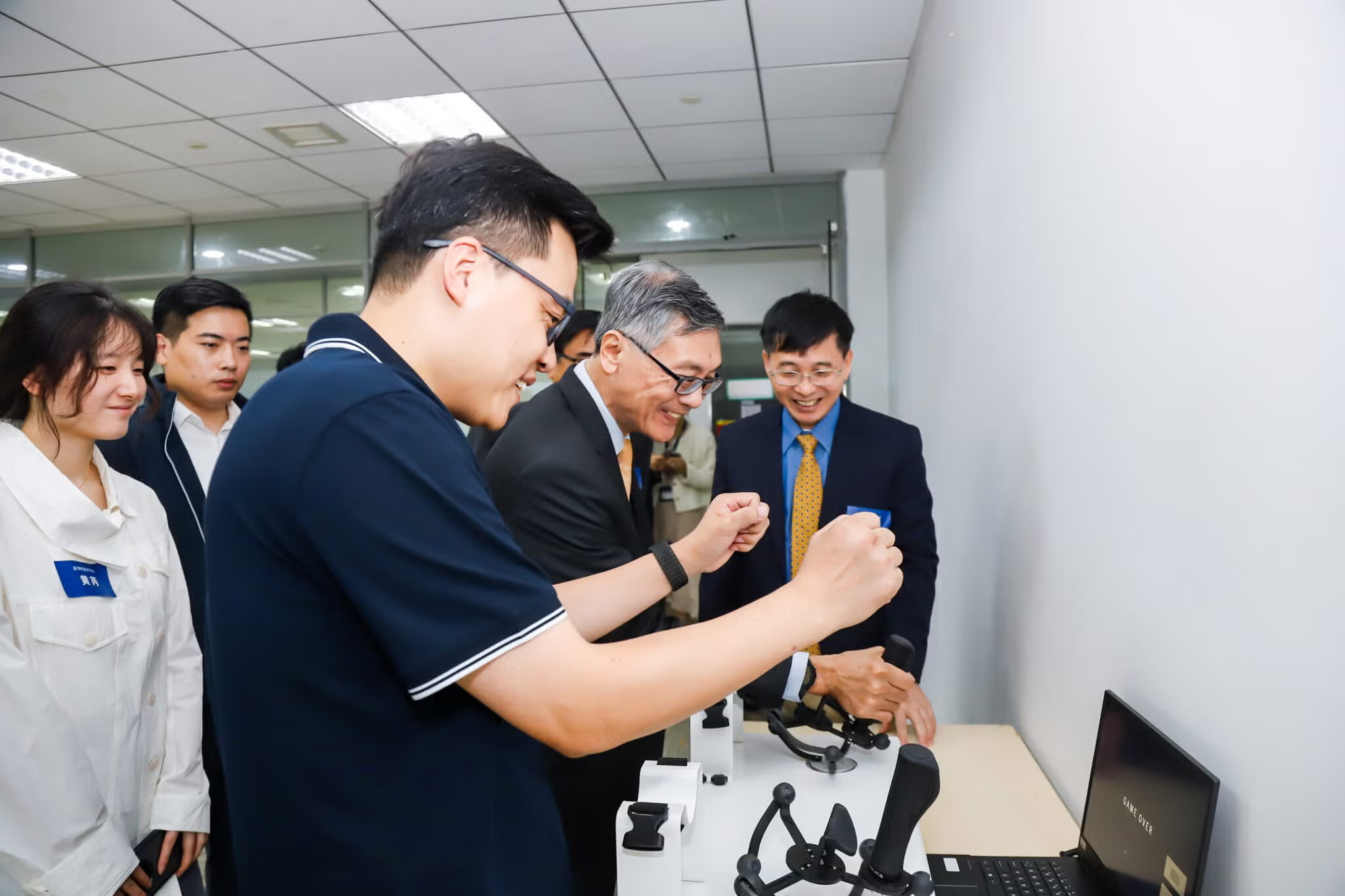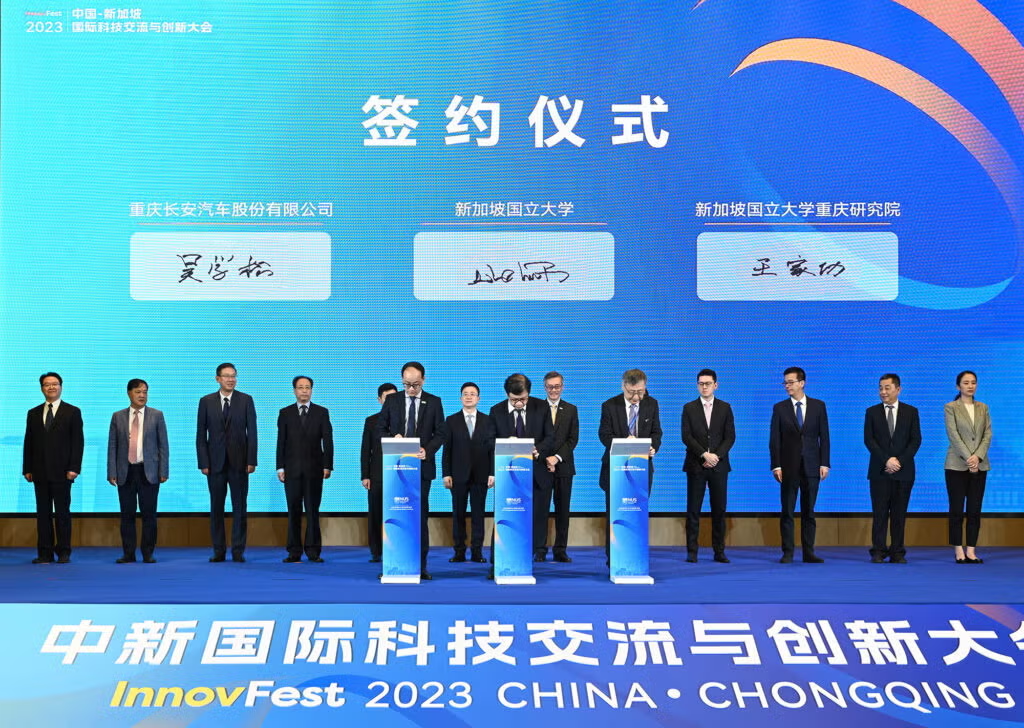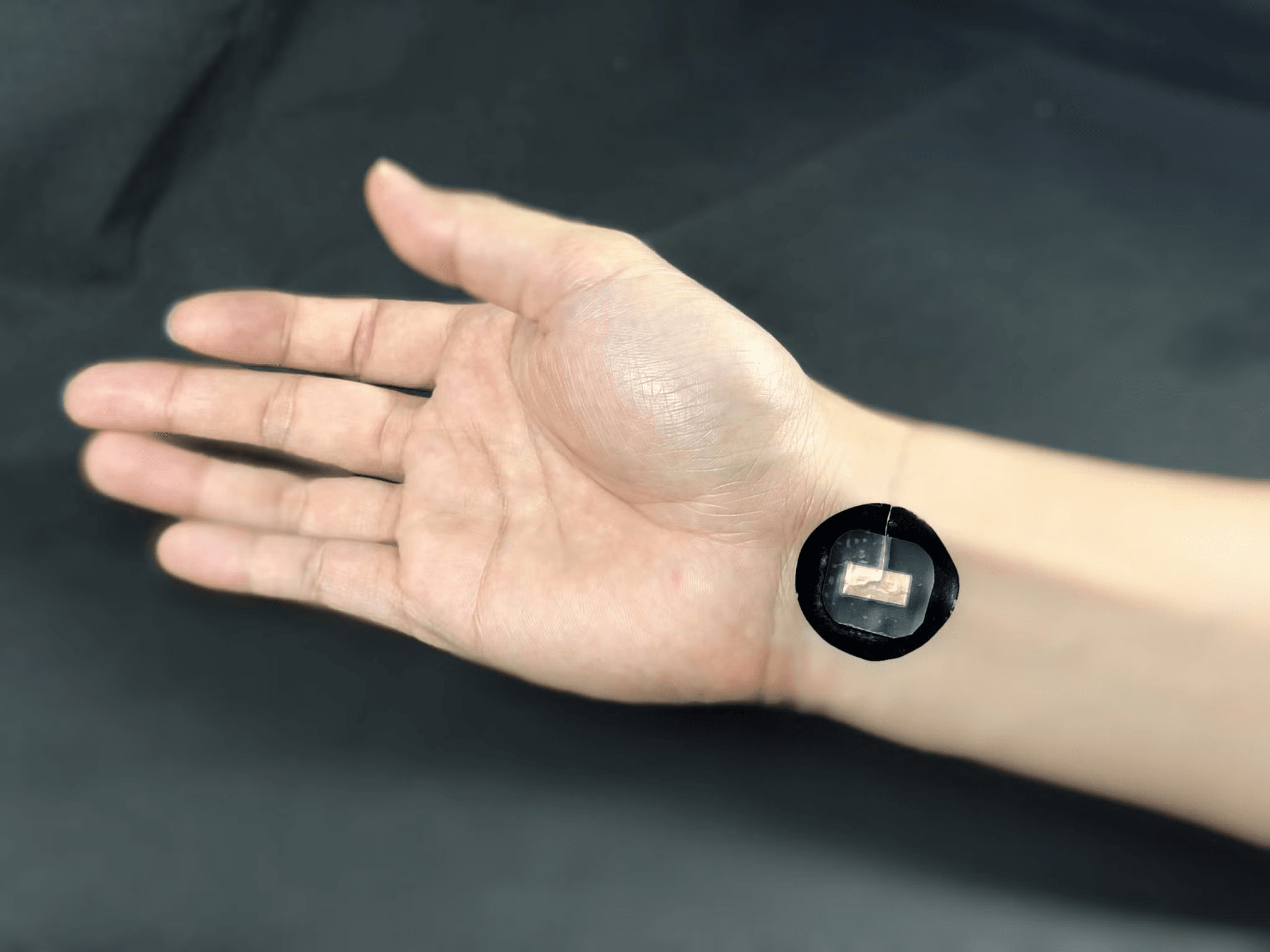
The site-selective late-stage functionalisation of C-H bonds in complex molecules developed from our studies is a very useful class of reactions. This method could potentially find broad application in olefin synthesis, structural modification of pharmaceuticals and natural product synthesis.
Prof Wu Jie, NUS Department of Chemistry
The way we move and think depends on millions of neurons that carry electrical signals racing through our nervous system.
Detecting these bioelectrical signals – also known as biosignals – through electrodes placed on the skin allows doctors to better diagnose patients and for machines to be controlled with gestures or even with thought.
Conventional “wet” electrodes rely on a gel or liquid to detect biosignals, but these dry out over time and give lower quality signals when the patient is moving. For years researchers have been trying to make “dry electrodes” to solve these issues.
Now NUS Engineers have discovered a flexible, adhesive and conductive organic polymer ideal for use as dry electrodes, and have demonstrated them working in a real setting for the first time. Their breakthrough opens the door for durable electrodes that work well even in motion, and which are suitable for long-term patient monitoring.
Because it is dry and robust, it can be used to make durable, long-lived products, while its ability to be cast into different shapes allows it to be adapted for different applications.The dry PWS electrodes can see future application in patient diagnosis, physiotherapy, and rehabilitation, especially for long-term patient monitoring. They may also be used to enhance human-machine interfaces.
The research findings were published in Nature Communications in 2020.
Lei Zhang, Kirthika Senthil Kumar, Hao He, Catherine Jiayi Cai, Xu He, Huxin Gao, Shizhong Yue, Changsheng Li, Raymond Chee-Seong Seet, Hongliang Ren & Jianyong Ouyang; Nature Communications volume 11, Article number: 4683 (2020)

InnovFest Chongqing 2023 marked a significant milestone with the signing of 11 projects, including a new technology laboratory by NUSRI Chongqing, Changan Auto and NUS.
A highlight of InnovFest Chongqing was the signing of 11 projects, reflecting a deepening collaboration between Chongqing and Singapore in talent development and industry-university-research (IUR) innovation.
Among the agreements signed was the establishment of a new technology laboratory by NUS, Changan Auto, and NUSRI Chongqing. This collaborative venture will explore technological innovations, particularly in AI technology, the integration of smart cars with the ICT industry, as well as new energy batteries. By leveraging the strengths of universities and research institutes in the innovation ecosystem, the laboratory aims to address challenges faced by enterprises during the engineering and mass production phases, facilitating a holistic IUR development.
Additionally, the signing ceremony saw NUSRI Chongqing forming a partnership with Chongqing University for talent development. Nine industry-research strategic contracts were also inked with enterprises based in Chongqing, catalysing a robust innovation ecosystem in line with the event’s theme.
InnovFest China 2023 puts a spotlight on the expanding collaboration between Singapore and China, underscoring the crucial role of cross-border partnerships in fuelling innovation and progress and enabling both nations to better navigate the challenges of today’s ever-evolving technological landscape.

